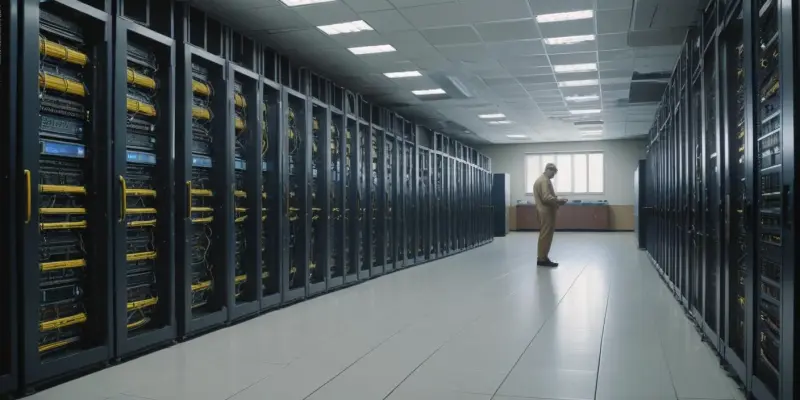On April 26, during routine maintenance on the UPS system of its Kyiv data center, De Novo, a prominent Ukrainian cloud provider, experienced an unexpected power outage. This incident stood out, highlighting vulnerabilities within data centers. The interruption, lasting 14 minutes from 8:03 am to 8:17 am local time, was caused by an unintended disruption in the power switching systems, cutting off power from both the battery and generators. Despite the swift restoration effort ensured by the prompt actions of the technical team, the lengthy process of reactivating numerous customers’ systems resulted in a significant strain on several platforms. This power failure notably impacted crucial online payment and financial services, including widely-used platforms like Diia and Nova Poshta.
Impact on Ukrainian Services
The repercussions of this brief 14-minute power outage were considerable, given the scale of operations and the number of services reliant on De Novo’s infrastructure. Financial and online payment services, crucial elements of Ukraine’s digital economy, experienced significant disruptions. Platforms such as Diia, a centralized digital hub for government services, and Nova Poshta, a leading postal and logistics service, found their operations temporarily incapacitated. This incident illustrated the profound dependency of modern services on reliable and continuous data center support, emphasizing the necessity for robust emergency protocols. De Novo’s power loss serves as a stark reminder of the intricate web of interdependencies between digital service providers and their client platforms. Even a short-lived outage can ripple across multiple sectors, highlighting the critical nature of data center resilience in today’s digital-first approach to business and governance.
De Novo’s Strategic Response and Industry Context
Following this outage, the CEO of De Novo, Maksym Ageyev, addressed the incident’s implications while expressing the unique and rare nature of such an event. In the 17 years since its establishment, this was the company’s first major data center failure, underscoring its general reliability. Restoration of full operations by 11:00 am demonstrated the efficiency and preparedness of De Novo’s technical teams. Nevertheless, this outage drew parallels with a UPS failure experienced by a Google data center in Ohio, suggesting a broader industry challenge regarding power continuity during maintenance overseas. With cloud operations across three zones, including locations in Germany and Ukraine, De Novo remains pivotal in the region’s cloud computing landscape. Moving forward, the industry must heed such occurrences and continue to advance and implement proactive measures to mitigate future risks, ensuring enhanced reliability for essential services on a global scale.

